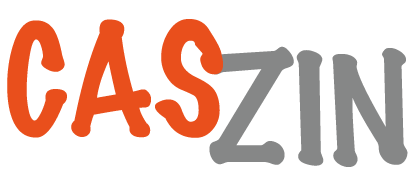Also available in:
Deutsch (German)
CASZIN has been pointing this out since 2023 (specialist articles at the end of this article), and now the tax investigators have struck hard. On 15 July 2025, the German ‘Tagesschau ’ now reports: ‘Influencers are said to have massively evaded taxes’. According to the report, the North Rhine-Westphalia tax investigation department has its own influencer team that has now tracked down 300 million in evaded taxes. It should be noted that this only applies to one federal state. Statistics fans can now extrapolate this to the whole of Germany. For the time being, at least the ‘big fish’ are being targeted. According to ‘Tagesschau’, the focus is currently on ‘professional influencers who evade their tax obligations with a high level of criminal energy’.
OnlyFans Creator just as affected as creators on YouTube, Instagram or TikTok
The platforms are not itemised in the article, but they are obvious. On average, the evaded income is said to be in the ‘high five-figure range’, sometimes in the millions. So anyone who exceeds the €2,000 per year required for a DAC7 declaration is obviously not that interesting for the tax investigators. Nevertheless, you should of course always comply with the regulations. This is because the tax office automatically receives information about your income from platforms through DAC7 and can therefore scrutinise your tax return. If you don’t pay taxes even though you are obliged to, this can be classed as tax evasion. This can lead to back payments, high penalty interest and fines. In the worst case, you could even face criminal proceedings that could result in fines or imprisonment. It is therefore important to declare your income correctly and pay your taxes on time to avoid legal problems.
DAC7 makes the tax investigation’s work much easier
Technical progress is also being made at the tax offices, and officials are currently working with the following tools:
- Automatic information exchange:
Digital platforms on which creators, freelancers or traders offer their services (e.g. marketplaces, brokerage platforms) are obliged to collect data on the income generated by their users and report it to the tax authorities in their country. This information is then automatically shared with the tax authorities of the other EU countries in which the users are liable to pay tax. - Comprehensive data collection:
In addition to the income generated, the reported data also includes information on the identity of the user (name, address, tax identification number), type of activity, payment amounts and any other relevant information. This gives the tax authorities a complete picture of income from digital sources. - Comparison with tax returns:
The tax authorities can compare the data reported by the platforms directly with the information in the users’ tax returns. If income has not been declared or has been incompletely declared, this becomes immediately apparent. - Early detection of discrepancies:
Automatic data synchronisation enables discrepancies and potential tax evasion to be identified at an early stage. This enables targeted audits and reduces the time and effort required for time-consuming research and providing evidence. - Increased deterrence:
Because the likelihood of unreported income being discovered is greatly increased by DAC7, the directive has a preventative effect. Many taxpayers are thus motivated to declare their income correctly and pay taxes properly. - More efficient audit processes:
DAC7 provides tax auditors with structured and reliable data sources that speed up the audit and improve the quality of tax inspections. As a result, resources can be utilised in a more targeted manner and audits can be carried out more effectively.
To summarise, DAC7 facilitates tax audits by creating a seamless, automated and cross-border information base. This increases the transparency of digital income, enables rapid data reconciliation and helps the tax authorities to identify taxpayers who do not fulfil their tax obligations. For creators, this means that those who report their income correctly and pay taxes are on the safe side.
Specialist articles from CASZIN on this topic:

